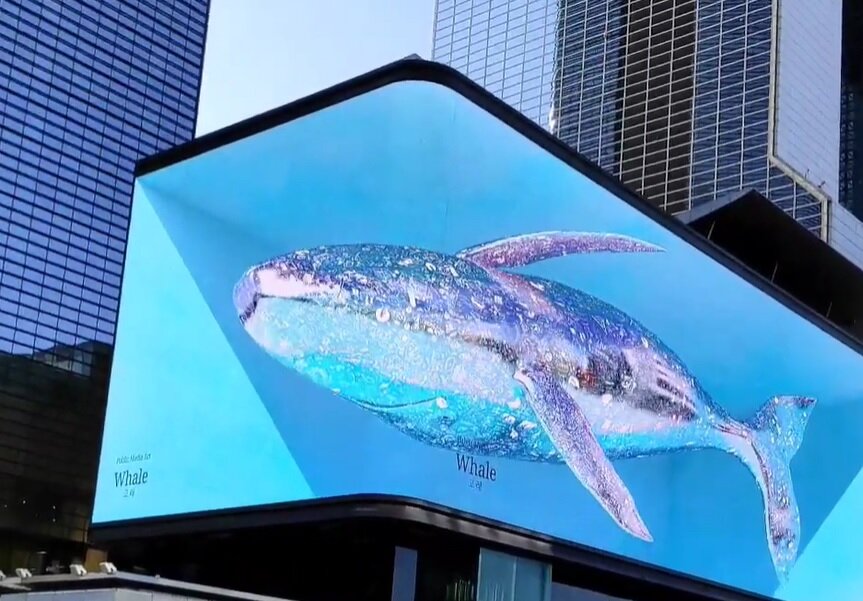DIGITAL BILLBOARDS AND DATA COLLECTION
In LA there's been a lot of talk about digital billboards, and many have voiced concerns about distracted drivers and visual blight. But there's another side to digital out-of-home advertising that's even more disturbing. In many cities these billboards now contain cameras and wireless devices that collect data from people passing by. Both the City of LA and Metropolitan Transportation Authority (MTA) are now considering proposals to build vast outdoor networks that would enable advertisers (and probably others) to keep an eye on us 24/7.
In April the MTA Board approved a Memorandum of Agreement (MOA) for what was labelled the Transportation Communication Network (TCN) Program. While the MOA portrays the Program as a win-win, offering real-time updates for both transit riders and drivers, it actually raises more questions than it answers. For instance, an extensive network of cameras and transmitters will apparently be installed, but an MTA presentation says there will be no impact to the budget and no capital outlay required.
So who’s paying for this infrastructure if not the MTA? And who will be installing this vast network? Is it a private for-profit entity? If so, this raises the question of who will actually be handling the data collected. There’s nothing in the MOA that talks about privacy concerns, which is especially troubling, since it says the info will be shared with law enforcement agencies. It’s also troubling that the working draft of the MOA Term Sheet is marked “PRIVILEGED & CONFIDENTIAL”, and the matter was rushed through the approval process in just over two months.
At the same time, the City of LA is speeding forward with its Sidewalk and Transit Amenities Program (STAP). In this case the proposal is to have an outdoor advertising company maintain and enhance the street furniture used by transit riders and pedestrians. In return, the company would be able to install digital ad displays, again with cameras and wireless devices to collect data from people passing by. While the City’s proposal claims to address privacy concerns, in reality it does nothing of the sort. A presentation states, “Data collected will adhere to CA Consumer Privacy Act,” but since the data will actually be gathered by a private company, there’s no way for the City to enforce this. The same presentation also says, “None of the data collected under the program will be made available to any third-party without the approval of the City.” In other words, the data can be accessed by a third-party, and there’s no explanation of how approvals would be handled.
The odds are that at least one of the apps on your smart phone, and probably more than one, is continuously transmitting signals that give info about your location, interests and spending. This data can easily be linked to other data sets that contain info about your education, credit history and political affiliation. Do you really want to give advertisers, or law enforcement, or anyone else who’s interested, access to all that info? This article from Consumer Reports makes it clear how much data advertisers are already collecting, and how few controls there are over how it’s used.
Digital Billboards Are Tracking You
Transit Communication Network Program MOA from LA Metro
Sidewalk and Transit Amenities Program Presentation from Streets LA

